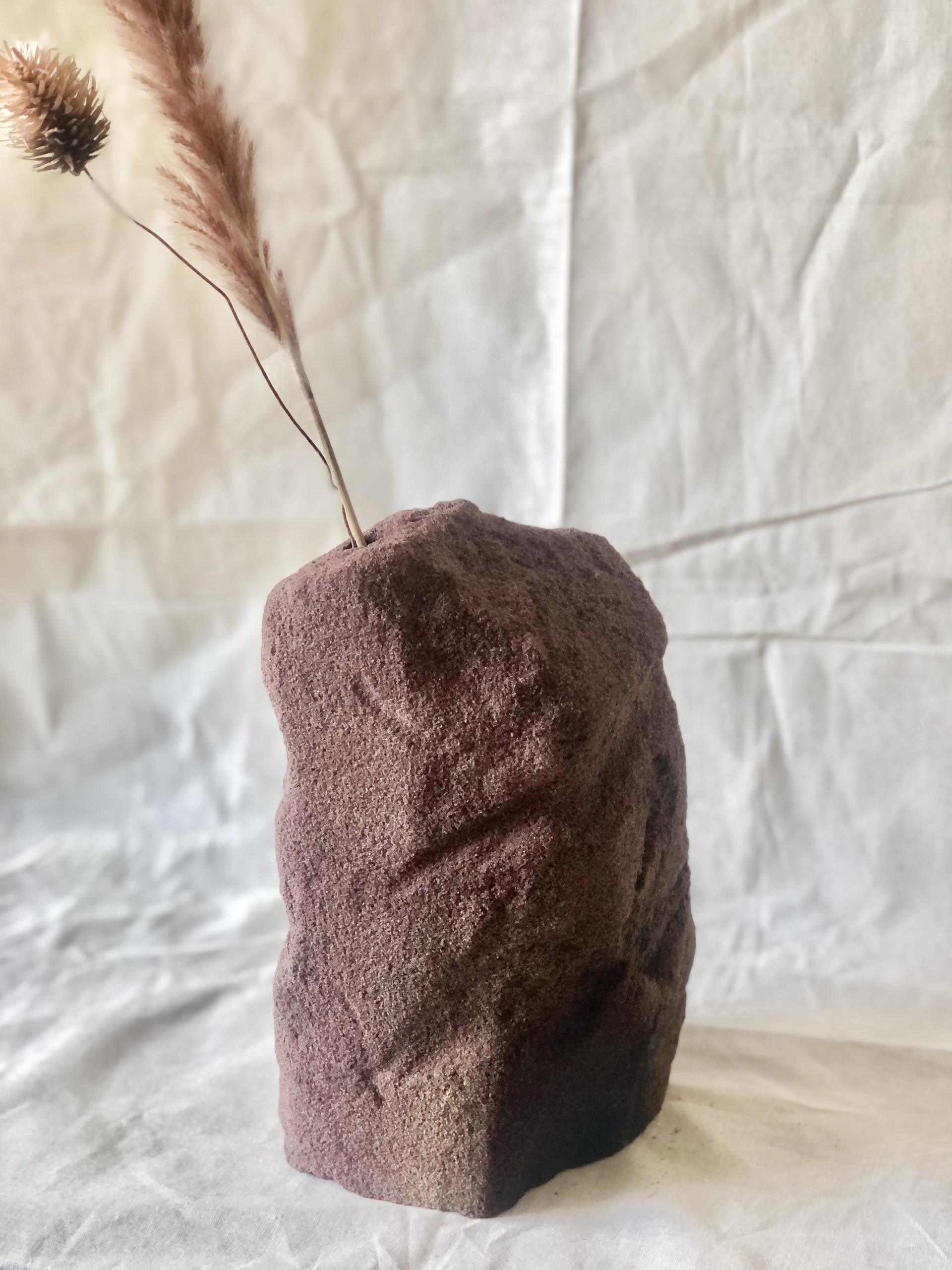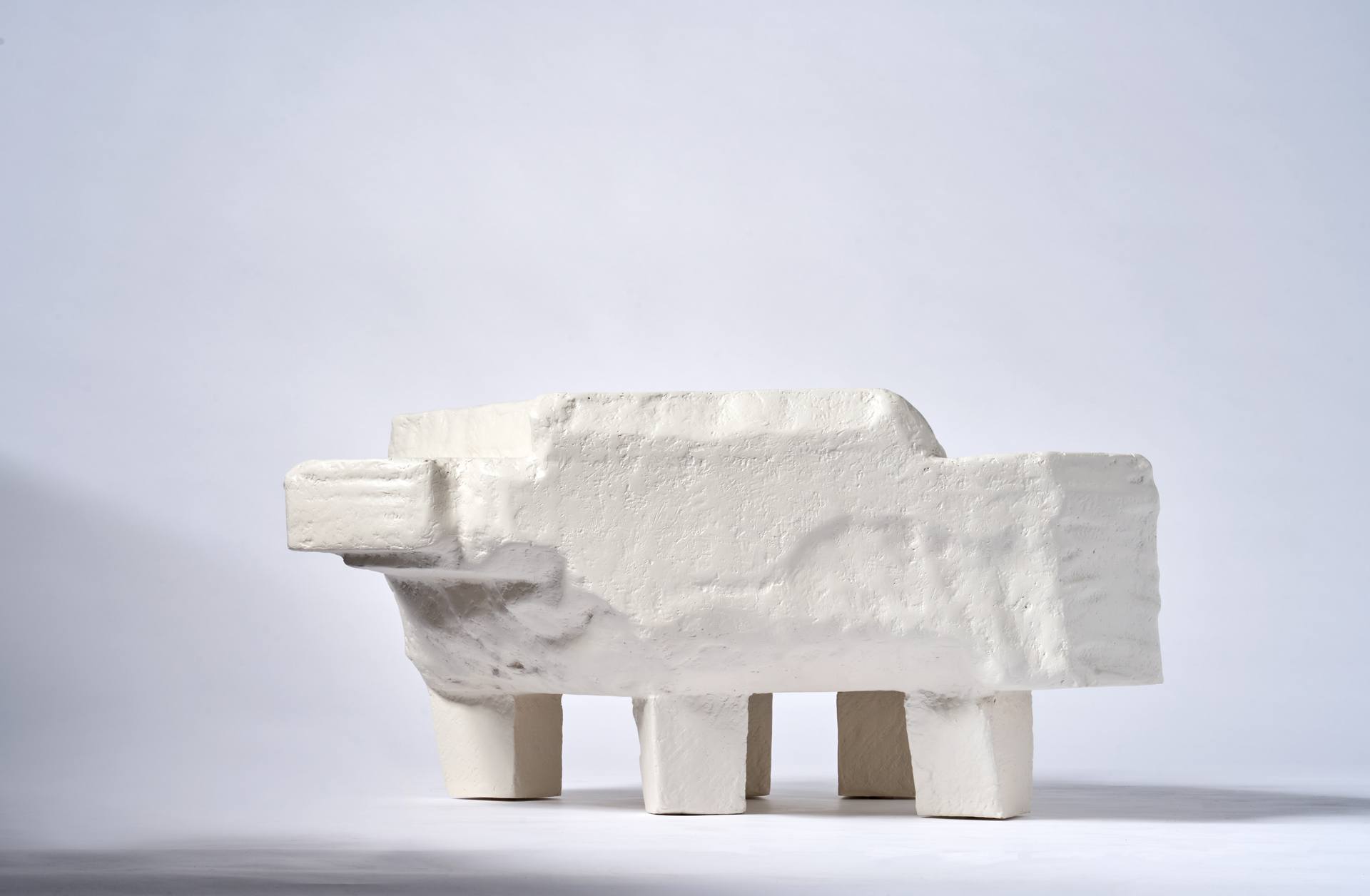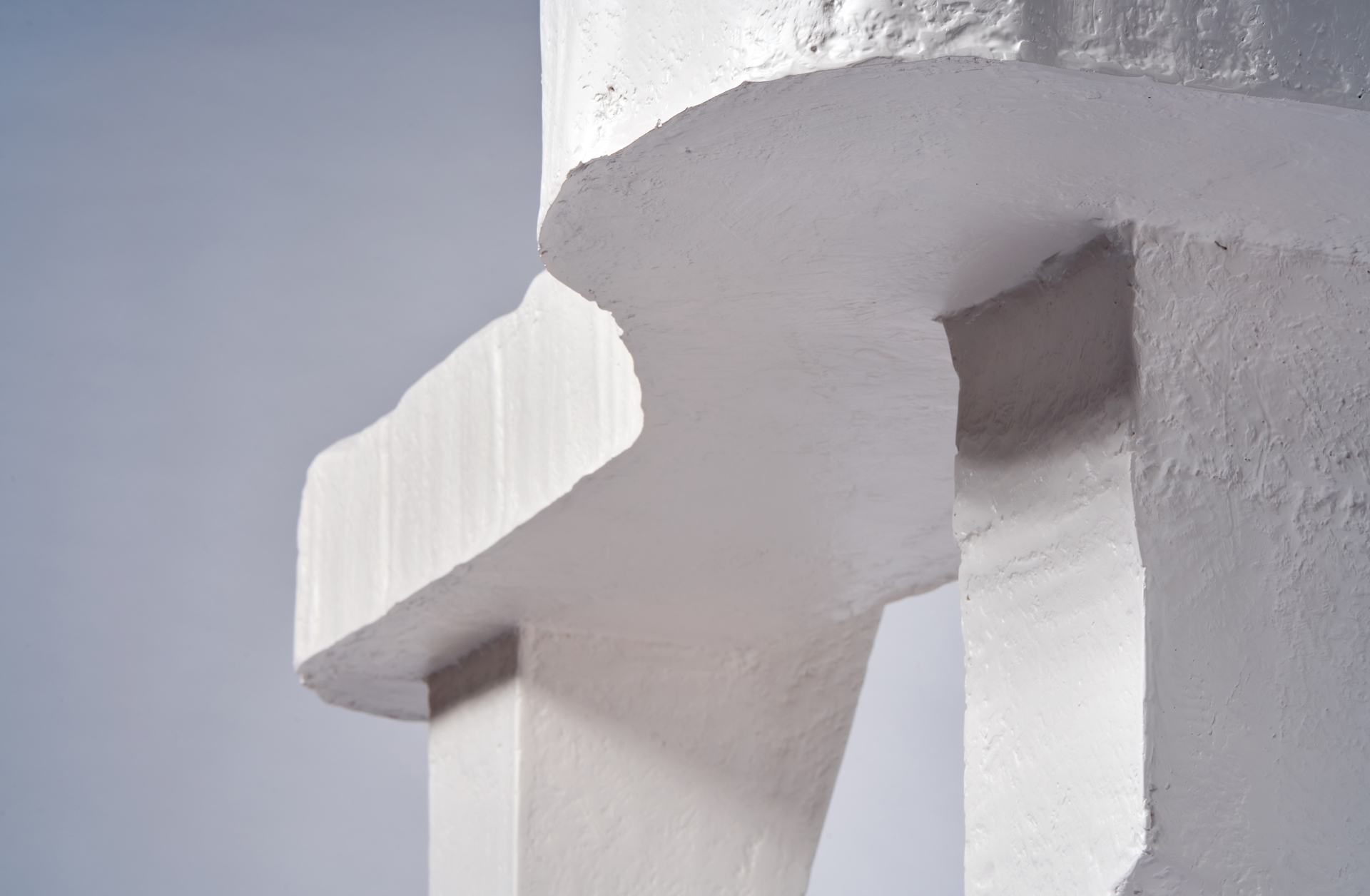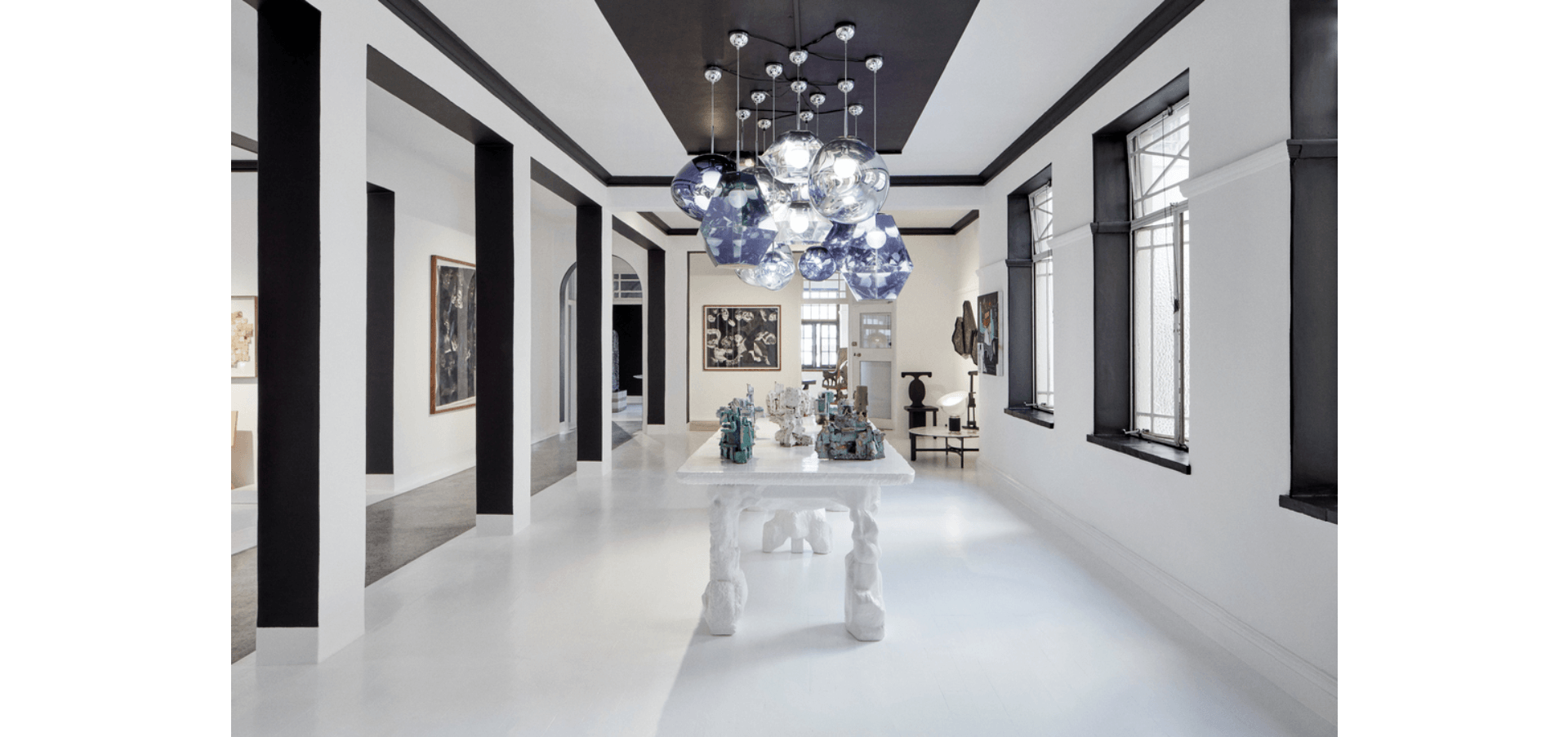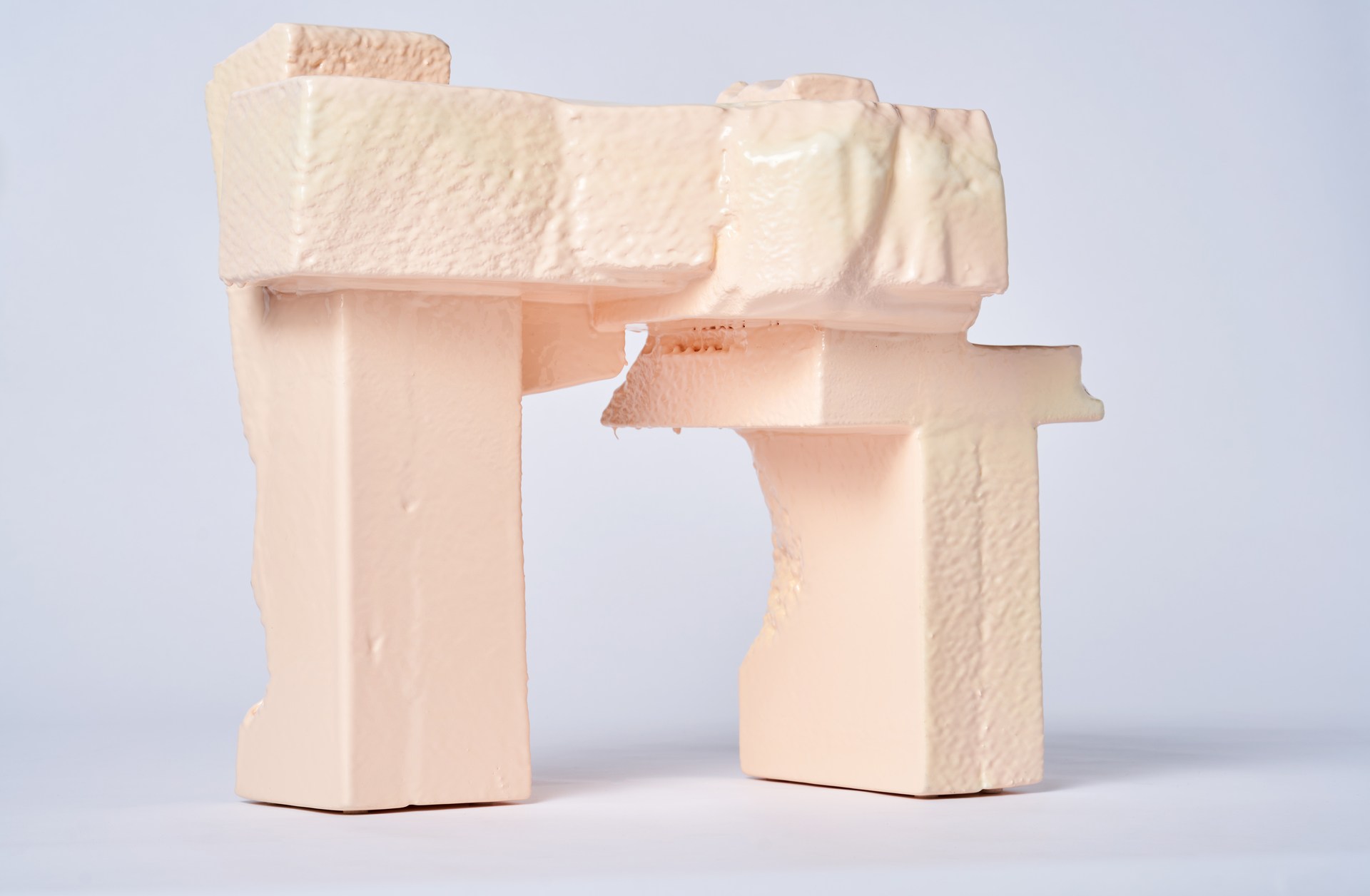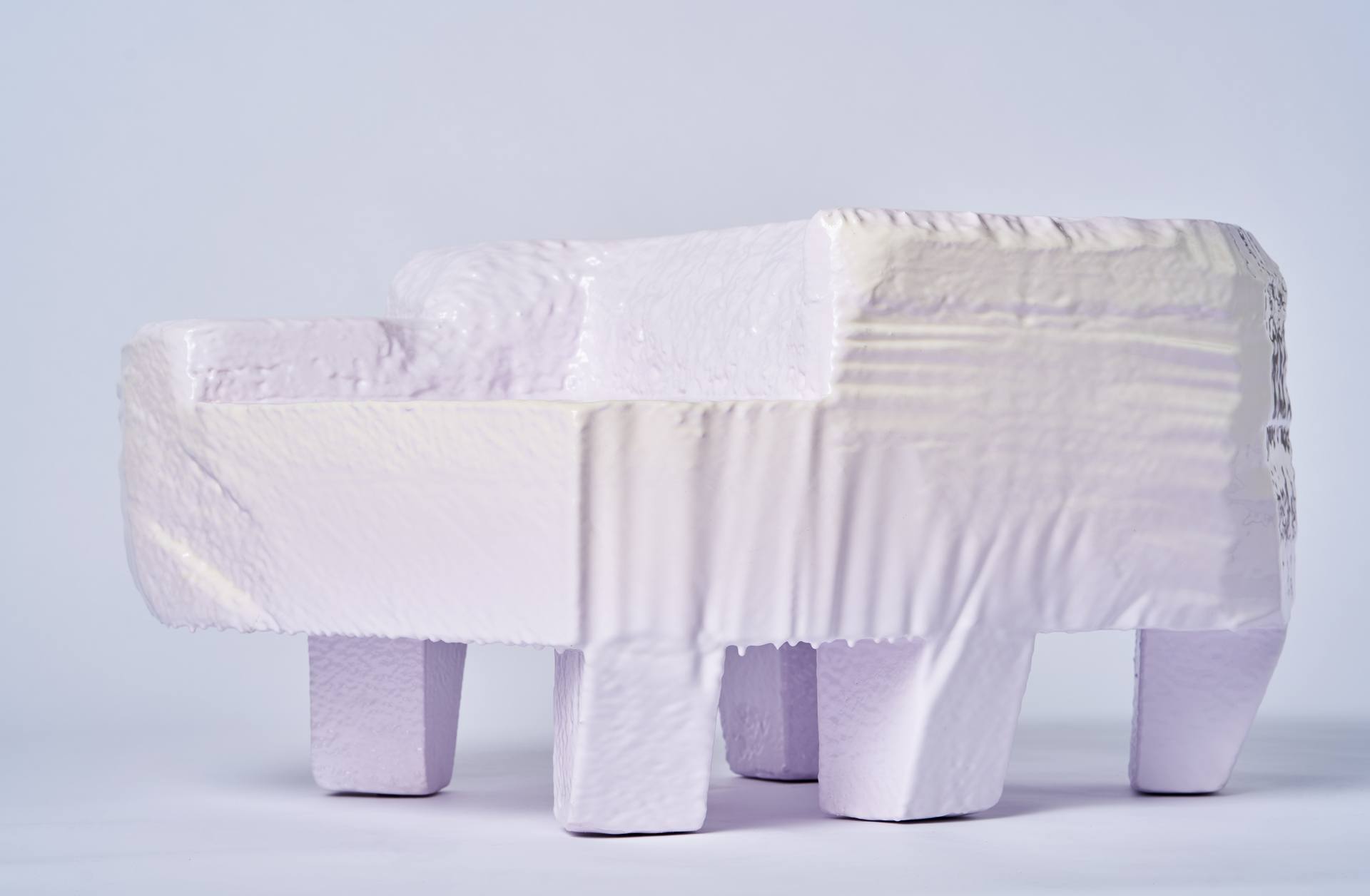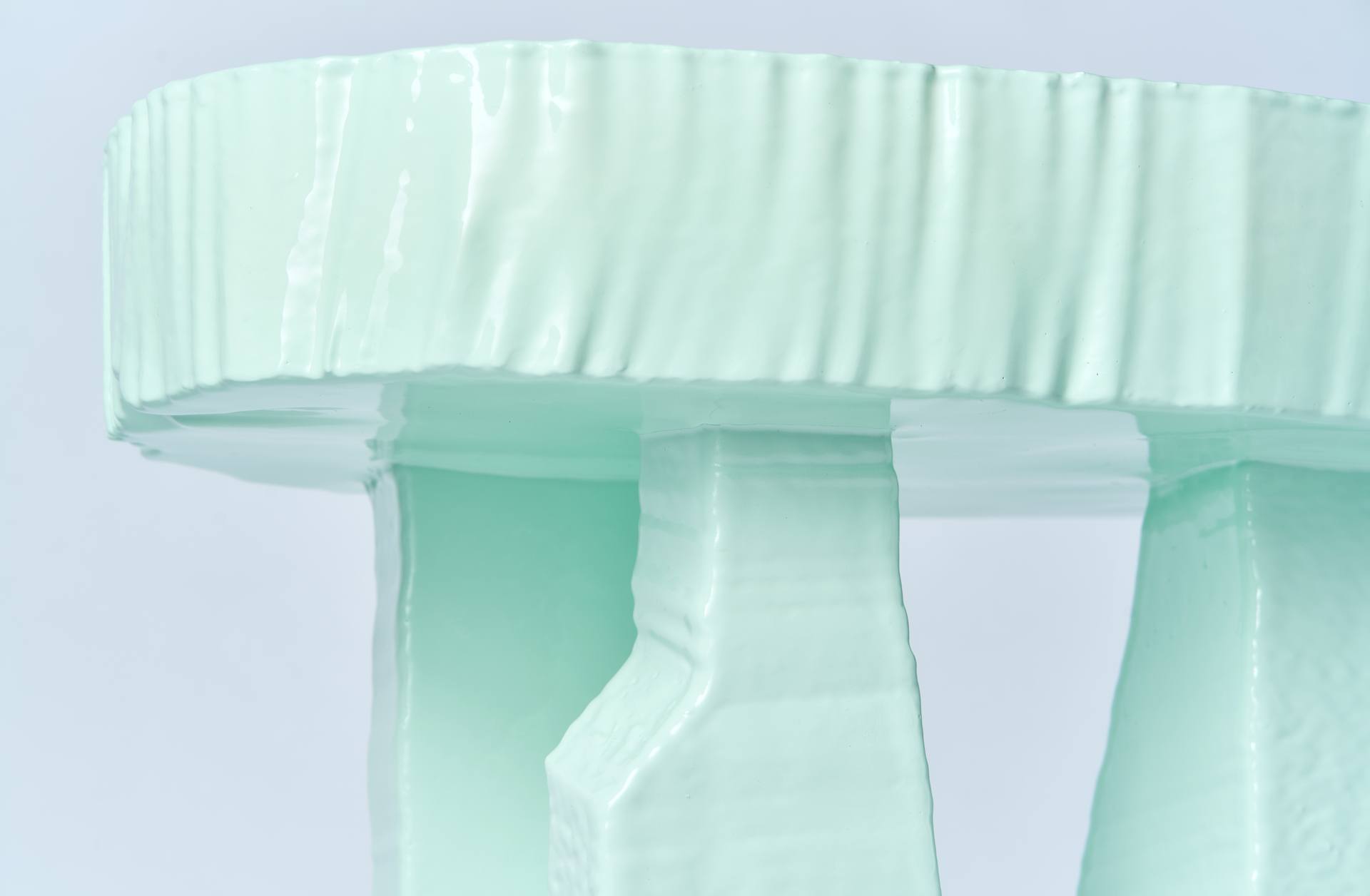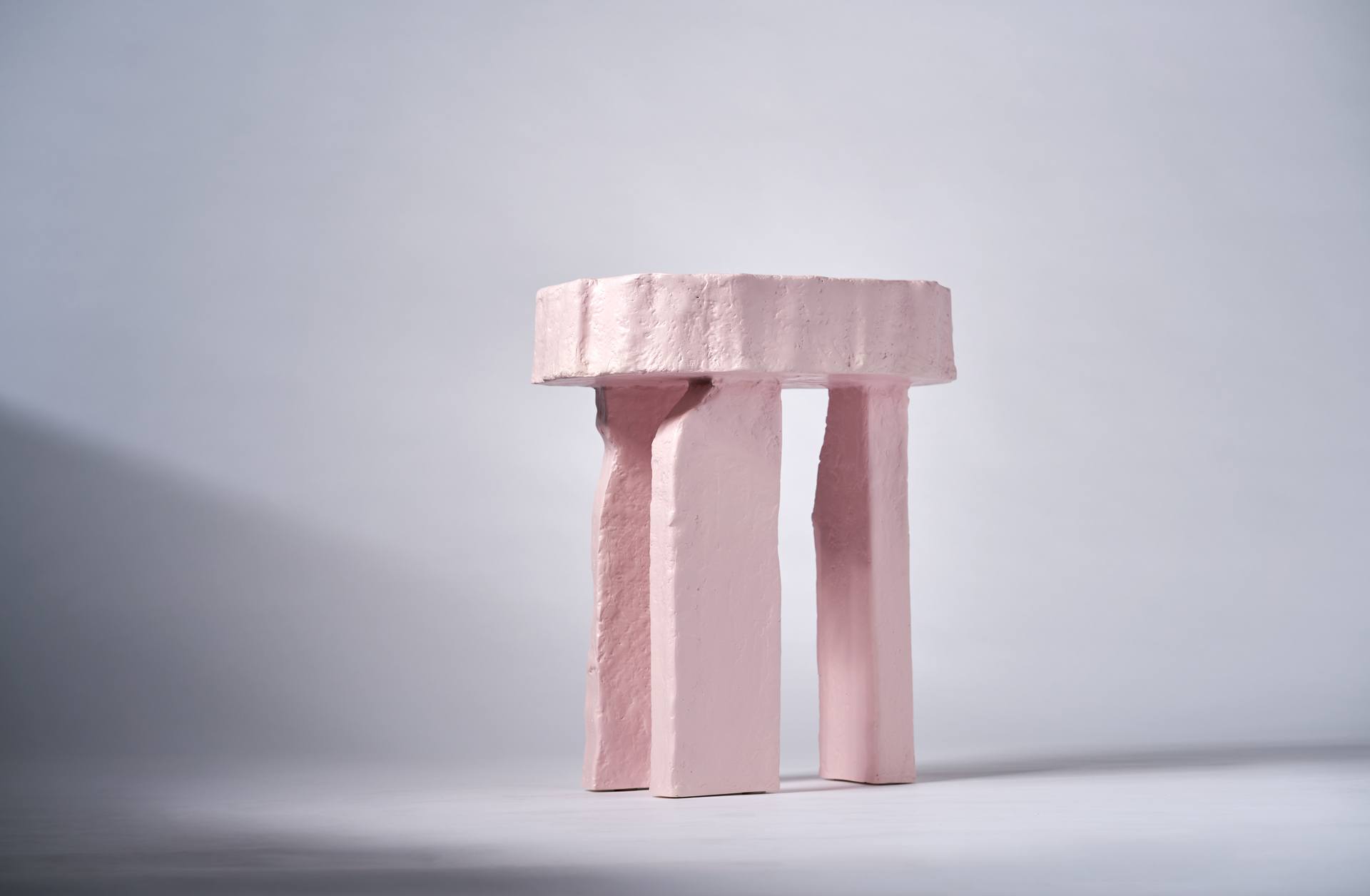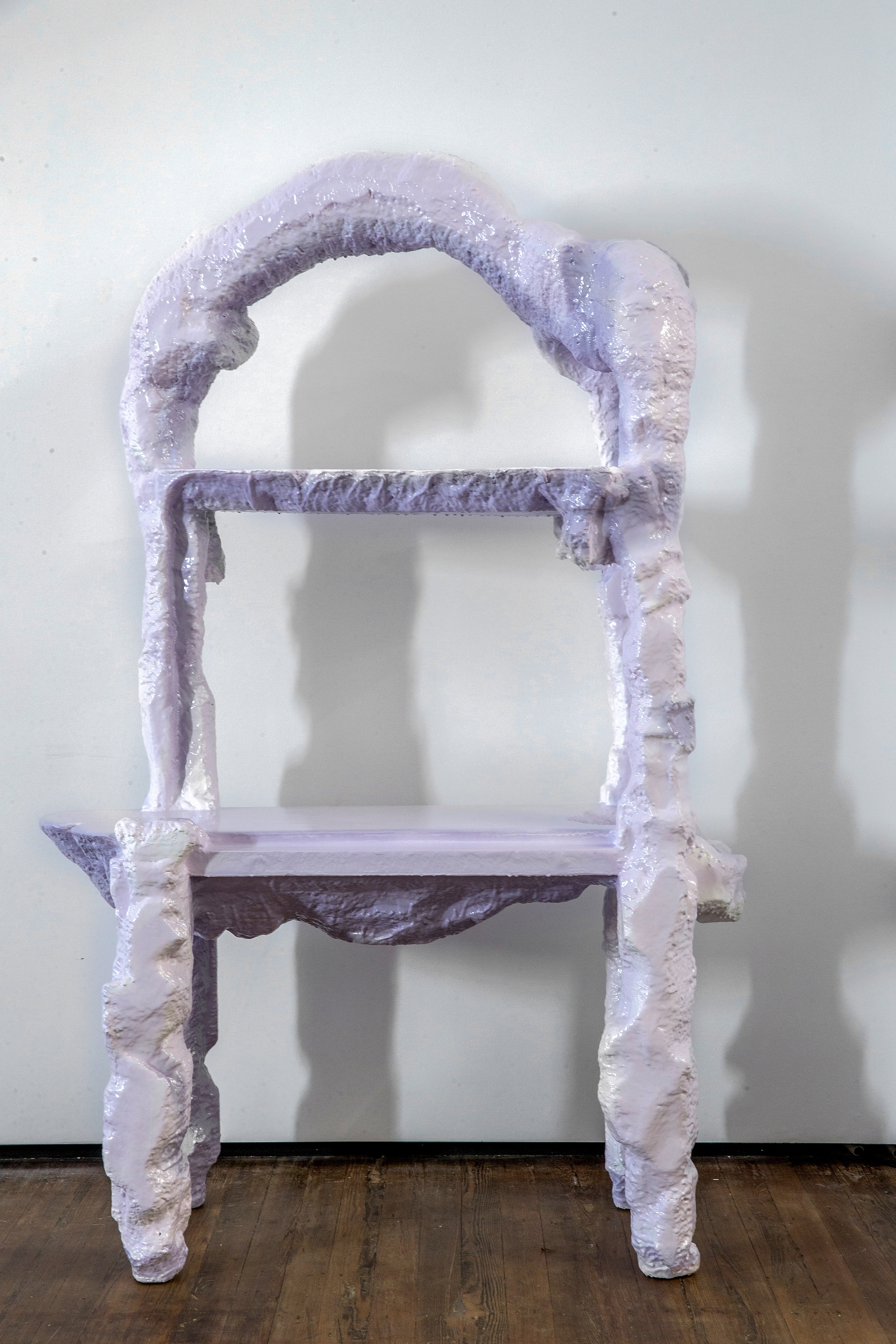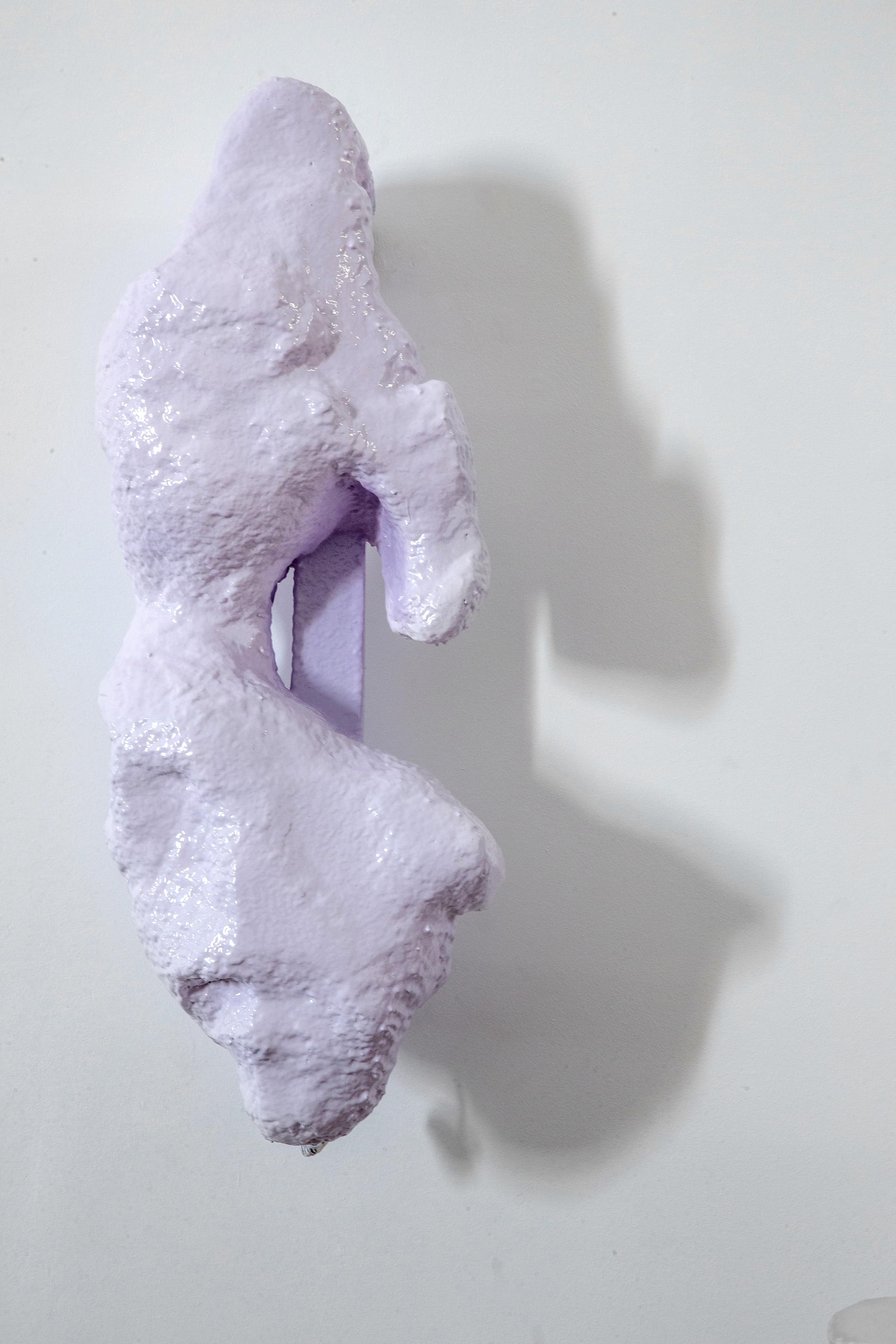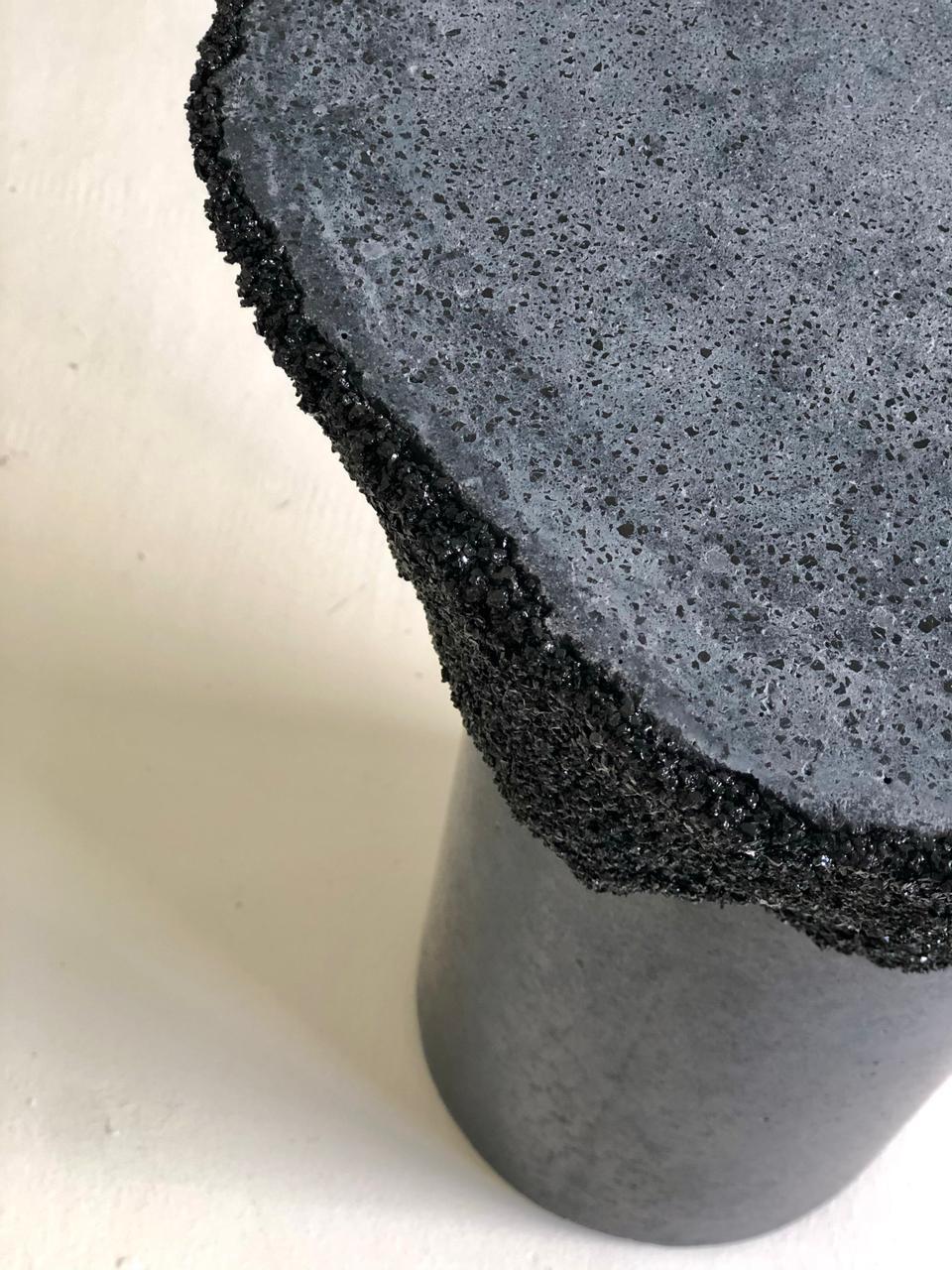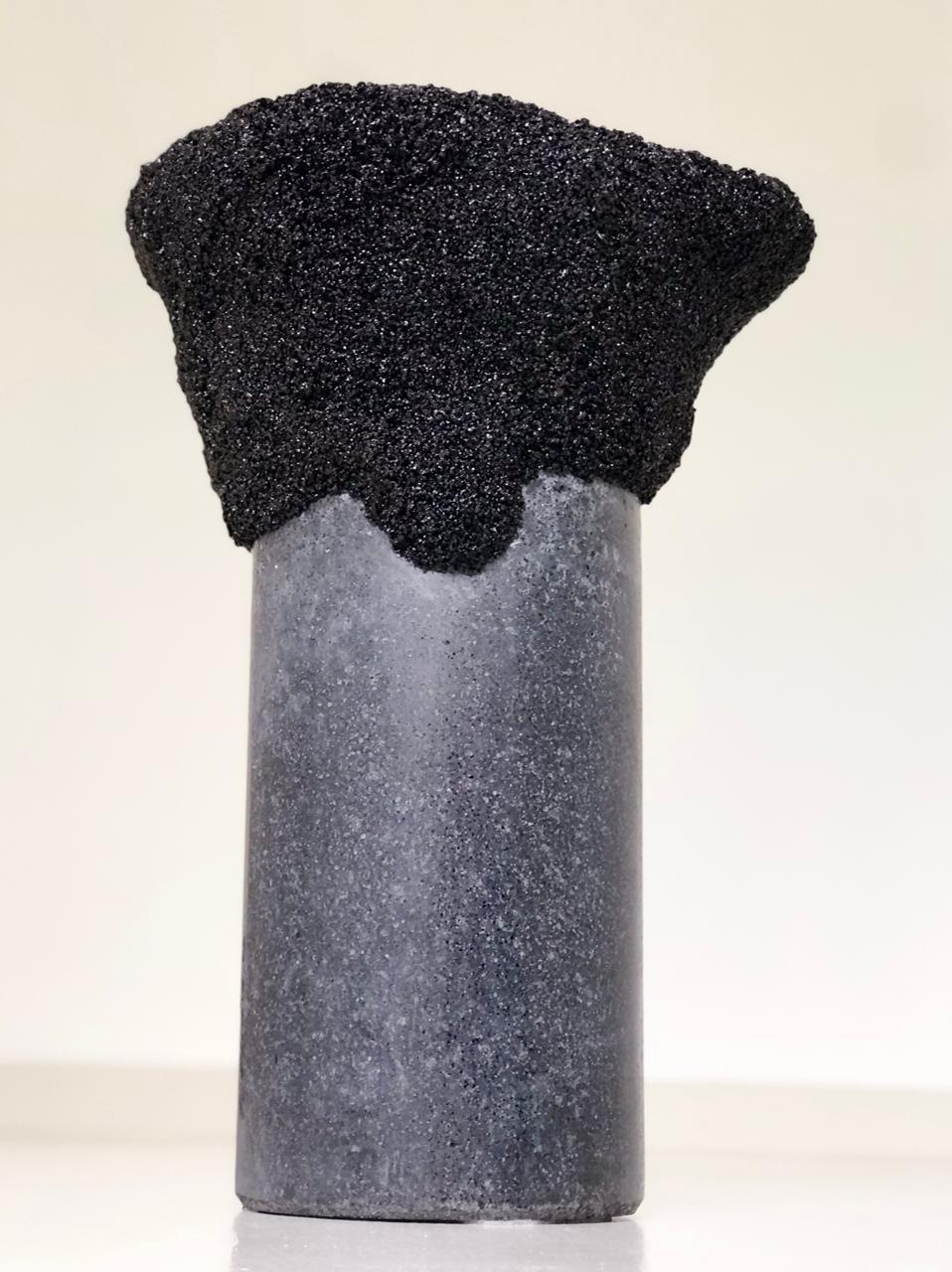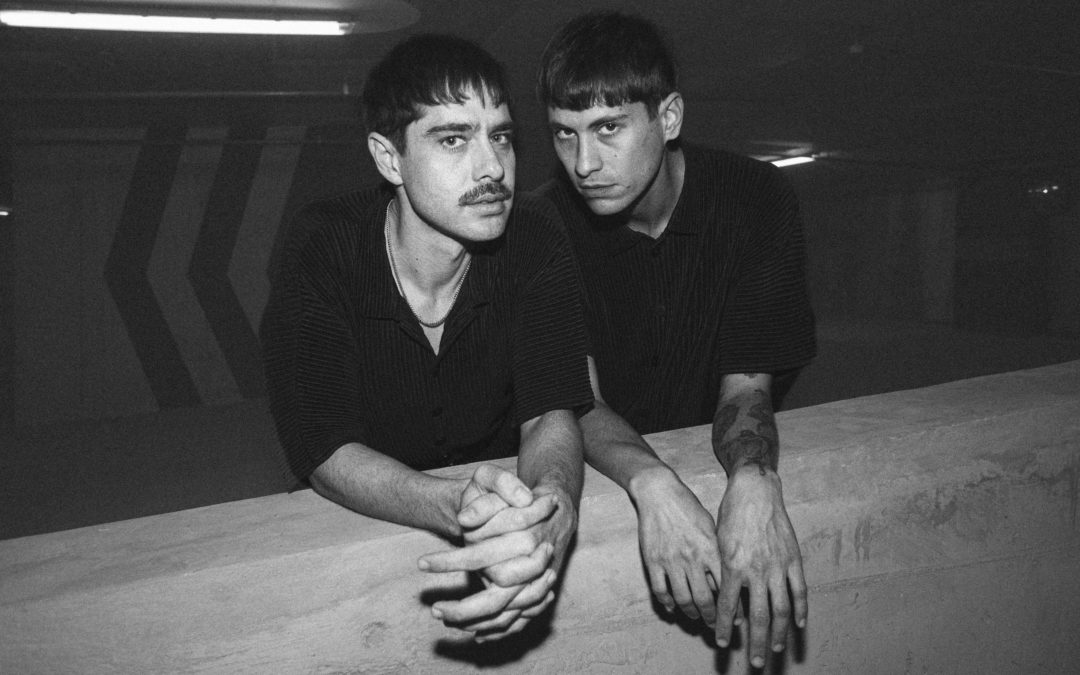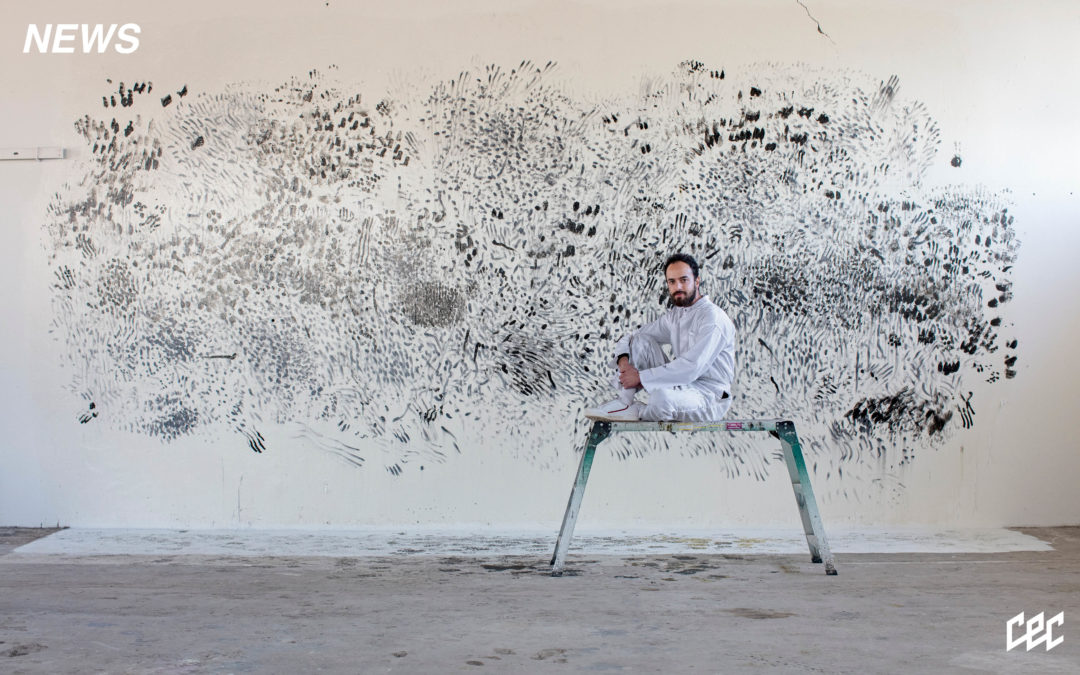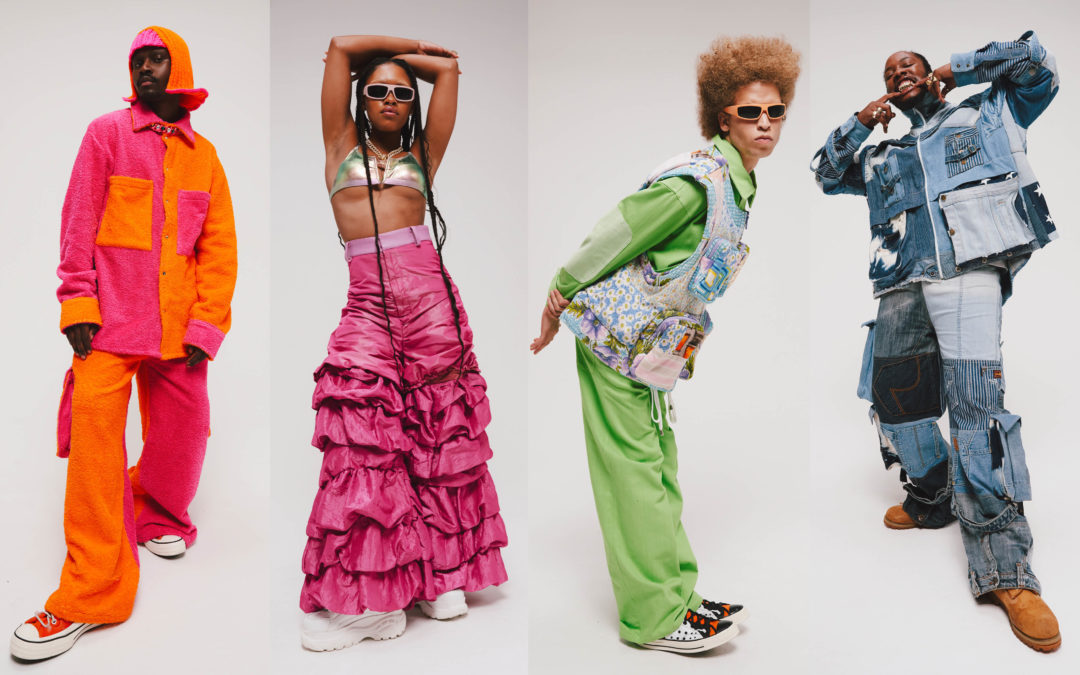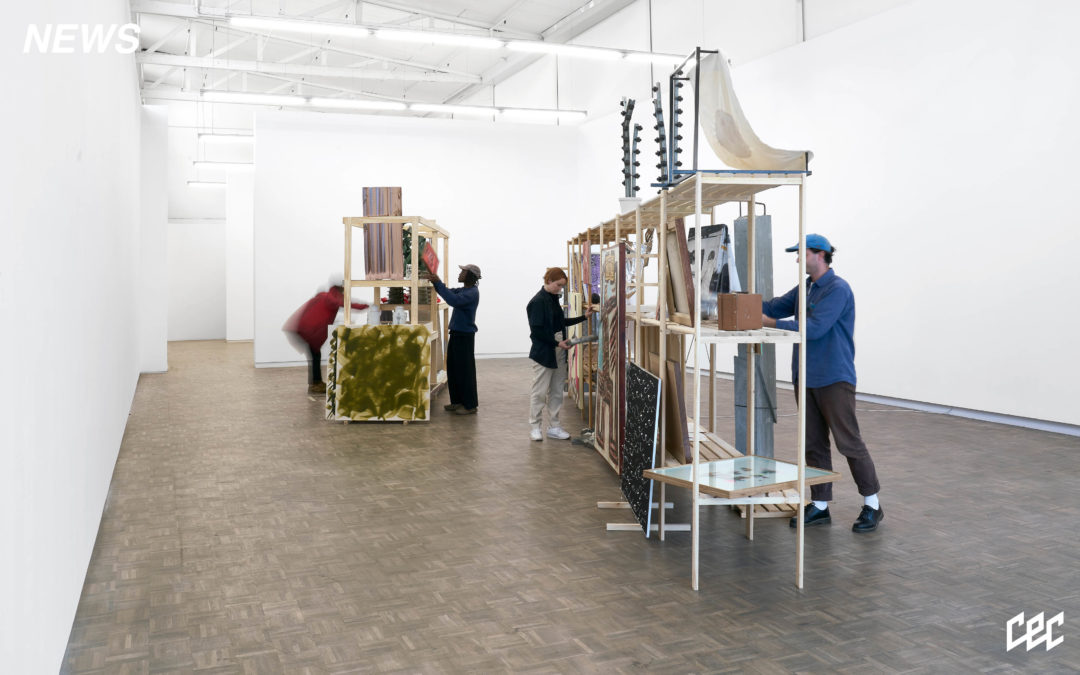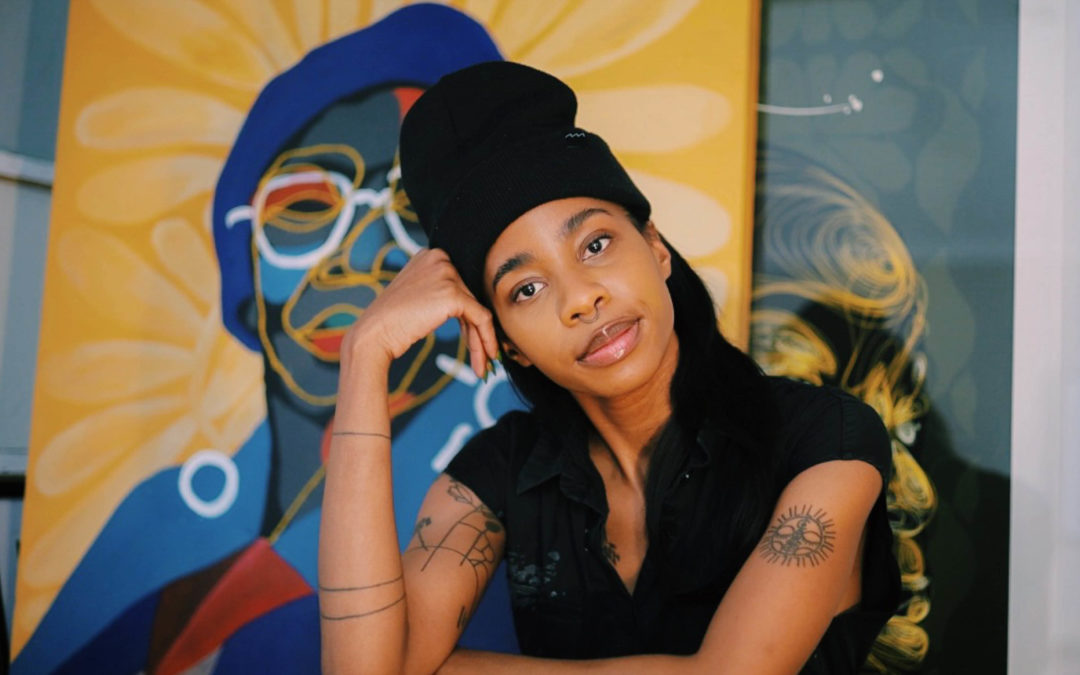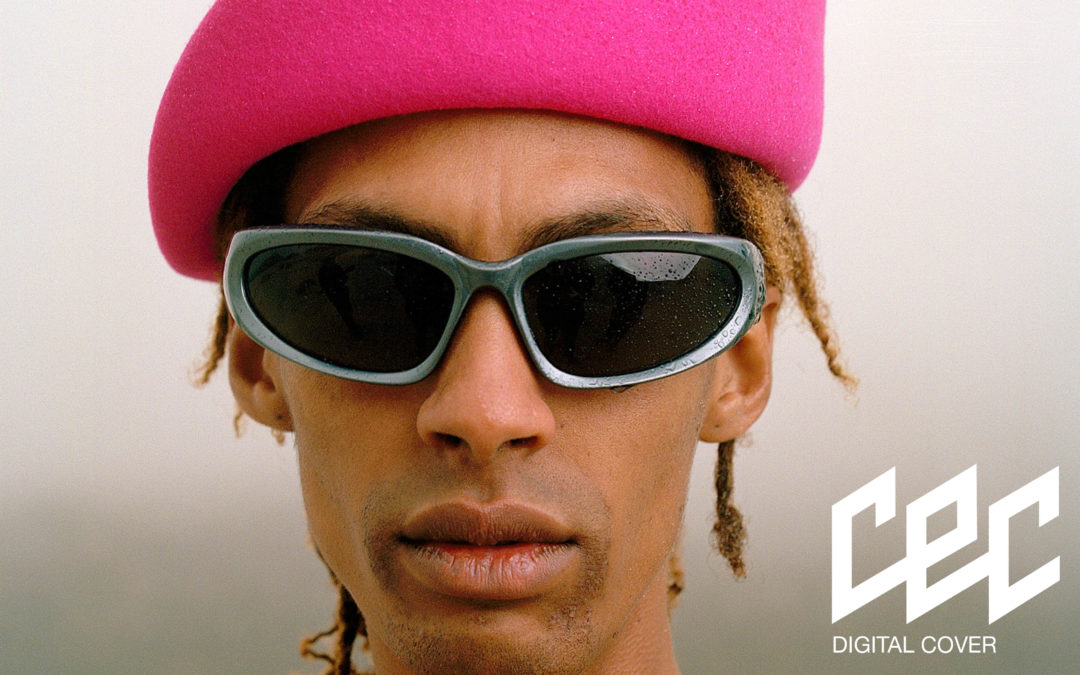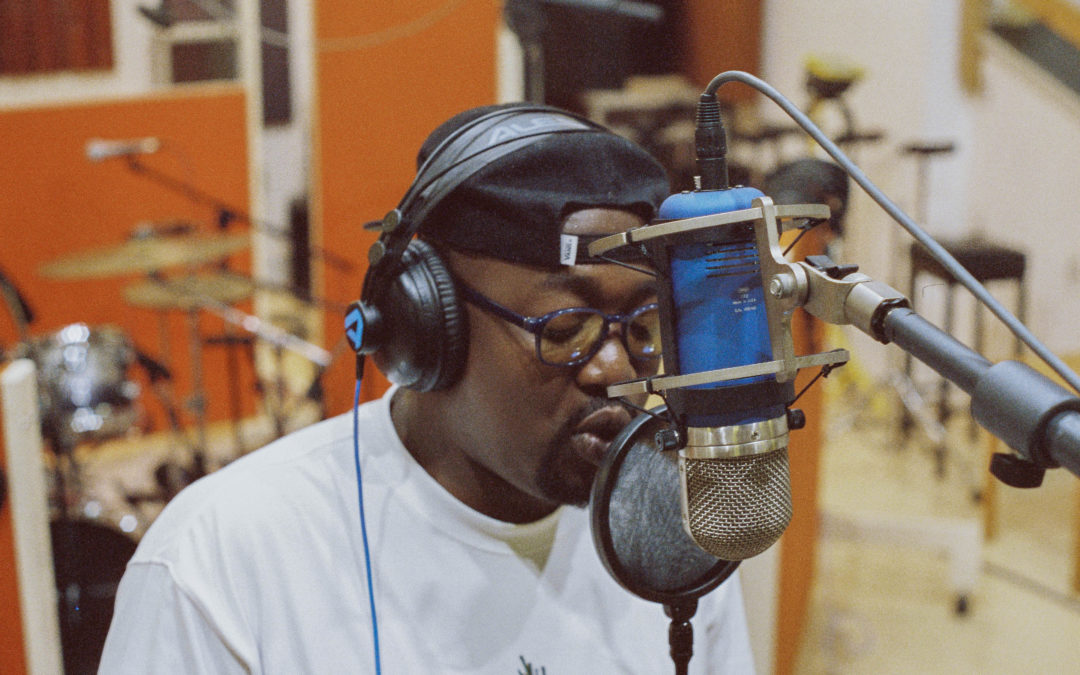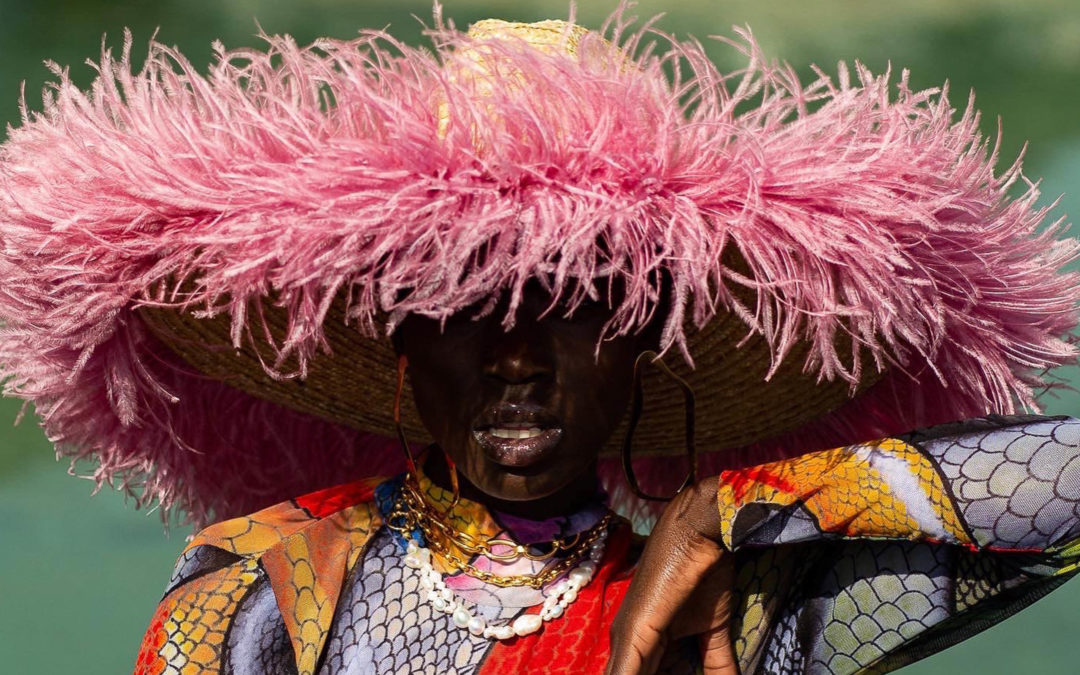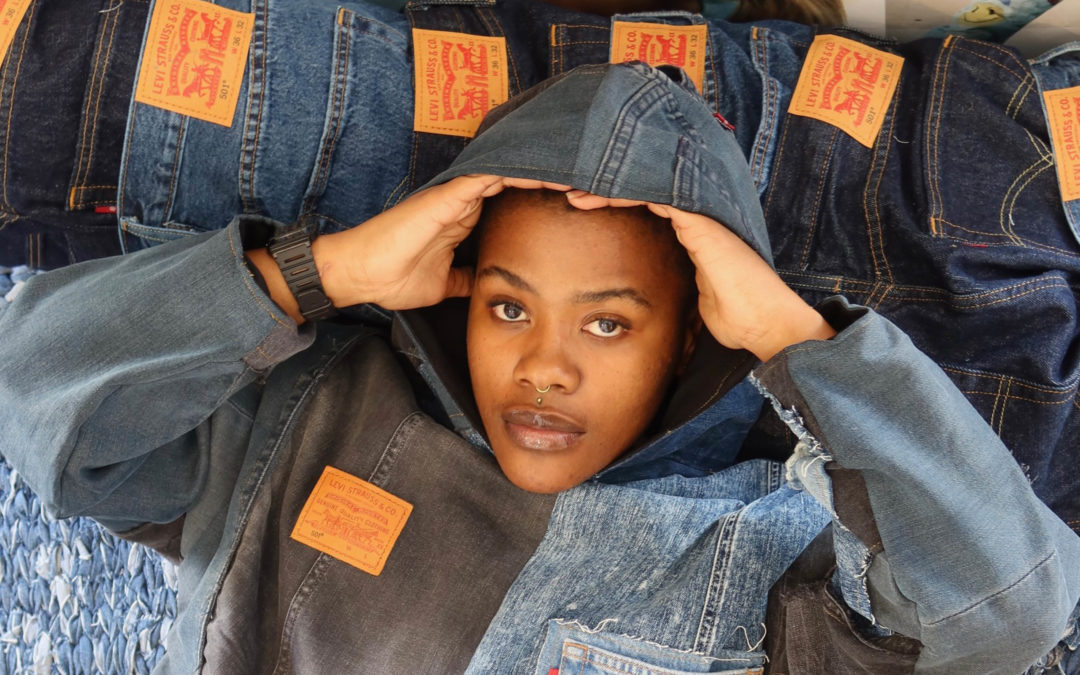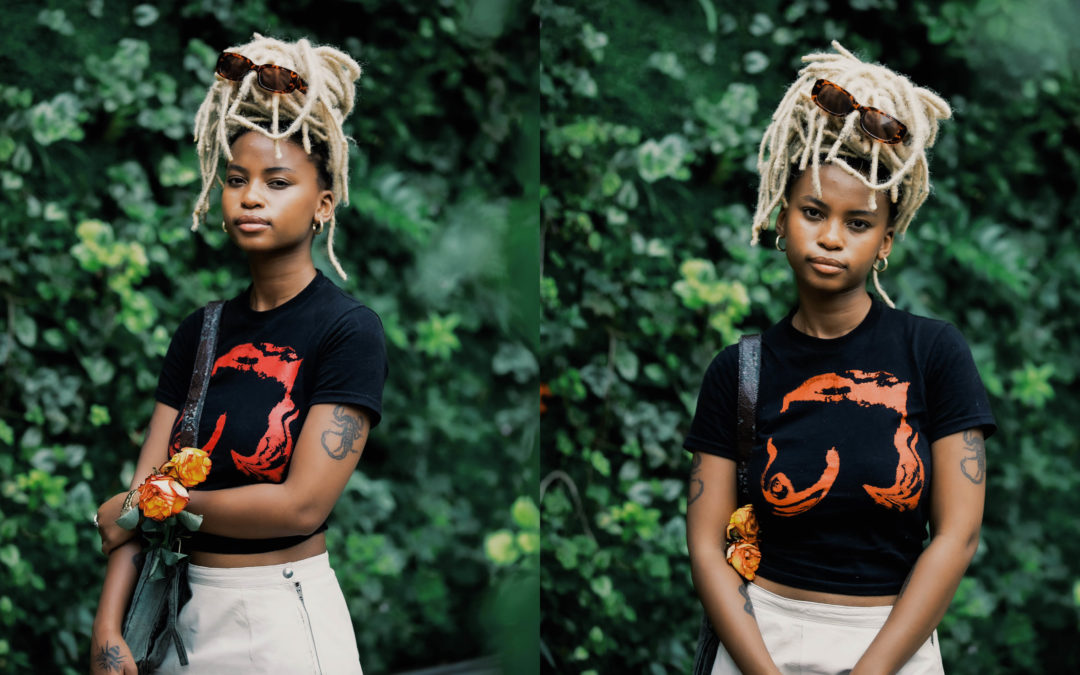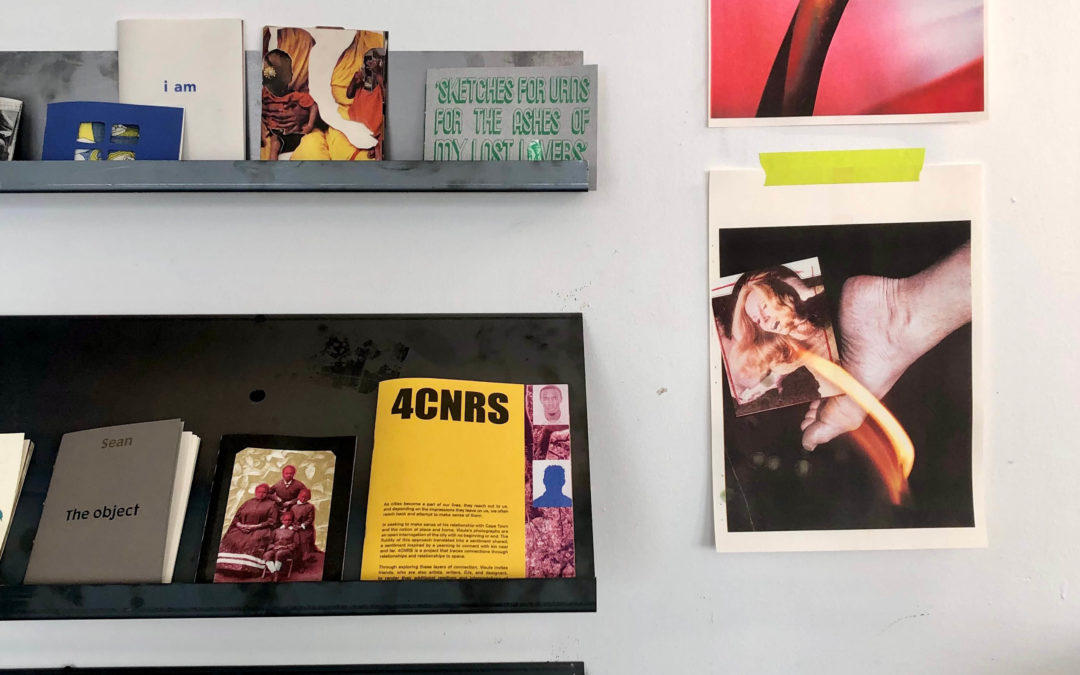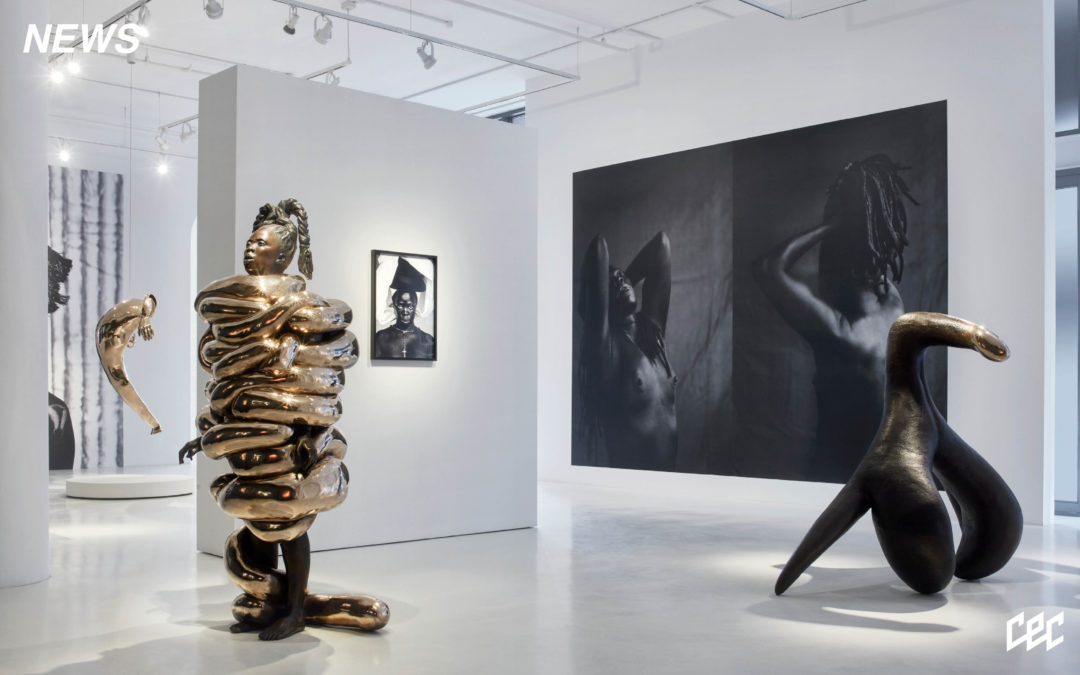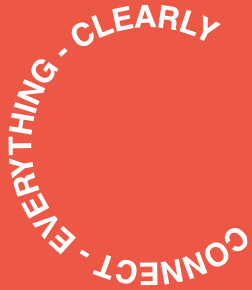The pathway from architect to designer and artist seems to be gaining ubiquity – from Danielle Smith, a previous feature of ours, to Virgil Abloh, to Zaha Hadid and Mario Bellini – yet, perhaps the distinctions we hold for categorising architects / designers / fashion designers and artists are merely that; categories that provide neat constructs for us to understand the creative anima that precedes, initiates and directs the outcome of these disciplines. Maybe it’s not so much a pathway or pipeline; but an eventuality for some, and a shift we need to make regarding our prescriptions and semantics around the act of creating. Ross Robertson is one such designer who originated his perceptual and creative through architecture; and with his entry into design; exemplifies the intersecting nature of architecture and design – the idea that these two methods exist more as an axis than as parallel occurrences in his life. Under the moniker Oliver Whyte, Ross is finding creative solace in defying the rules of his own making as an architect, with an initial design praxis that concerned itself with sharp lines and clean materiality; the latest designs from the studio at first glance read as concrete forms depicting rawness and heaviness – yet made with rubber and foam – bring together a juxtaposition of lightness veiled by weight and in some cases, lightened and tempered with pastel hues of baby pink, lavender and mint green.
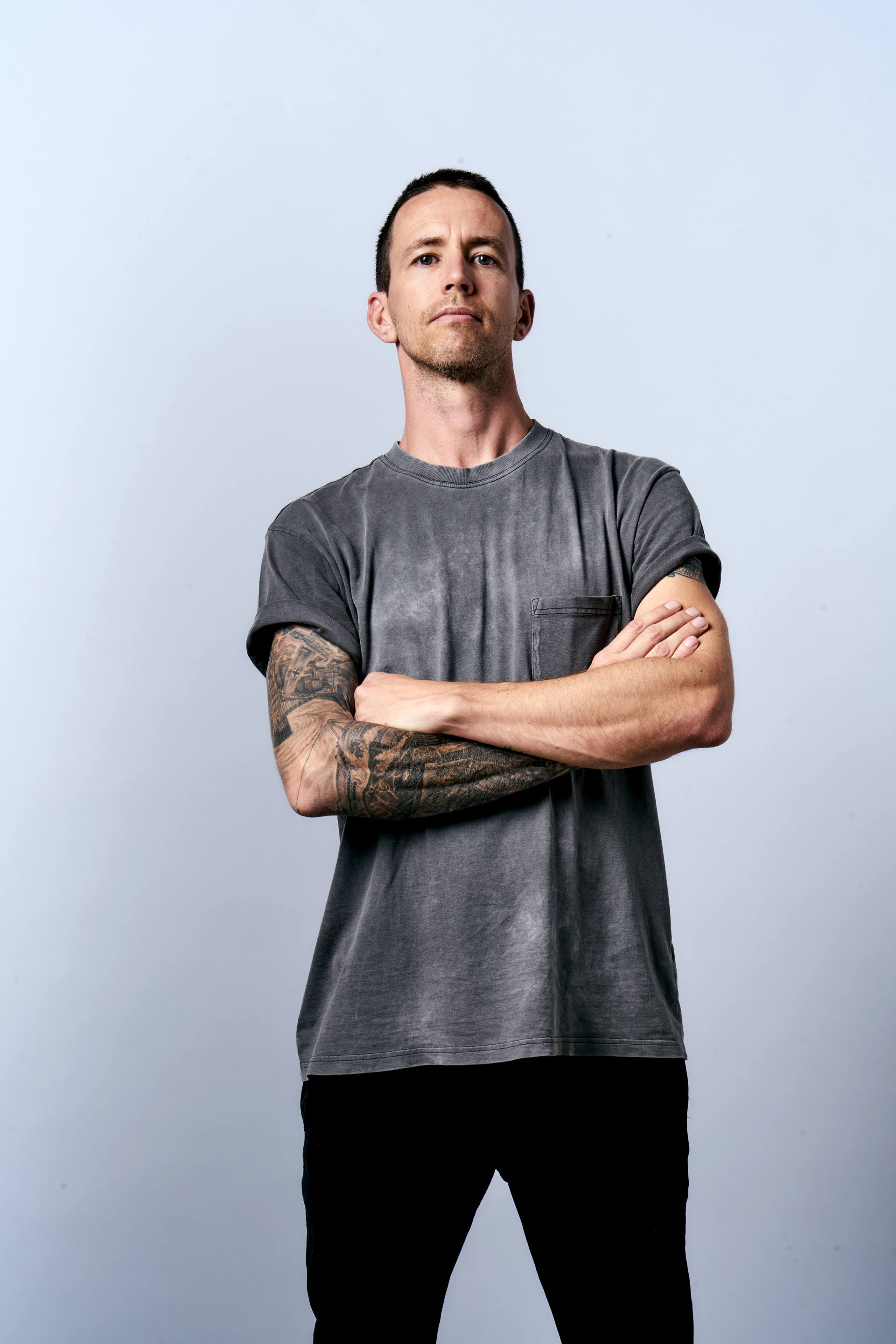
This collection, titled “Heavy” debuted at Decorex 2022 – on this Ross says “Sometimes my work looks like two different designers – there’s this juxtaposition between clean lines and a clear reference to architectural technique, and then the robust presence of colour and the shapes of concrete that I elected to paint in pastels. I’m usually so clear on being monochromatic in my own personal life, so using colour as part of my design process has initiated this sense in me that things can be playful. When we are younger, anything can be anything – like using a spoon to make an aeroplane or a pen into a car – as an adult, objects are totally fixed, and the suggestion of otherwise is a cause for concern. I think that’s why I’m quite focused on form at the moment – function is what it is, it is always being dealt with – this collection is really about that own inner process I’m experiencing as a designer.”
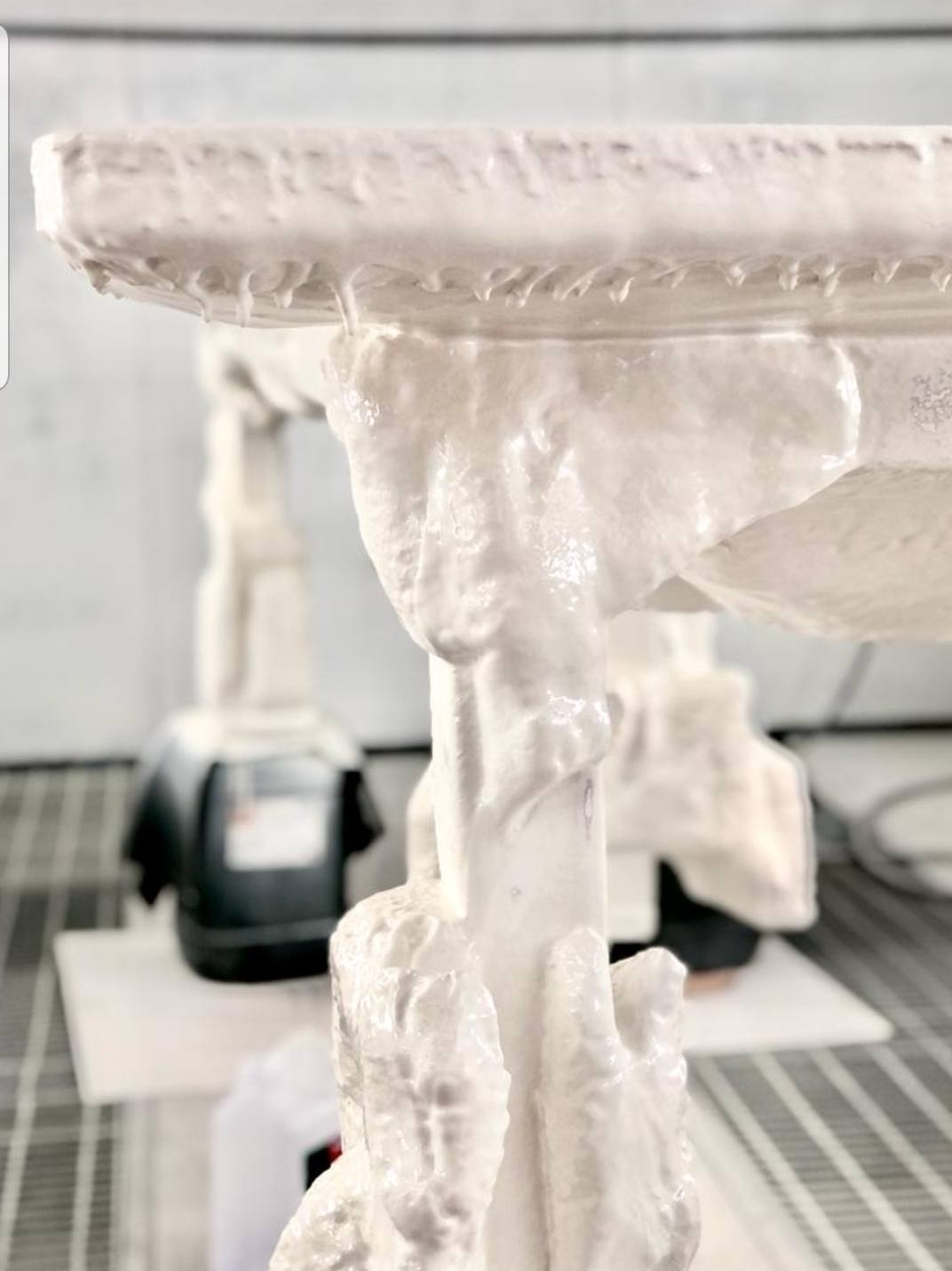
To create as a designer is to self-actualise – and often, creative blocks arise when we resist the call to go deeper, or further, from the spaces that provide comfort and familiarity, speaking to the inner-initiatory challenge that every artist must eventually face, Ross comments “I think it’s important to stave off any conception of the final destination. We were taught that in architectural training – to never envision the final building too closely, and instead focus on the process. It’s only by that, that I’ve been able to realise over time that my head has wanted me to perfect design – perfect angles, geometric expressions, cleanliness. But my hands do otherwise, and instead of having to confront this struggle, I’m now allowing a total surrender to unfold in my development as an artist and designer, to ensure I make things that reflect different aspects of who I am and what I’d like to see in the world.” Part of this actualisation has been Ross’ incorporation of an identity etched in his full name – for which he explains, “Oliver Whyte is the middle name of my full name, and like an alter-ego too. It was this whole portion of my name that sounded like a real person on its own, that wasn’t being used – and so it’s been great to use Oliver Whyte. I respond to both Ross and Oliver, and don’t correct people if they say either because they are both my names – just in a linear order, but descript for my whole identity.”
With a design landscape emerging – ours in South Africa is considered quite young – the sense of particularity in our collective design aesthetics is built around a small percentile of tastemakers who with privilege and access, tend to define the mood of design in the country; yet for Ross, this totally counter-intuitive to process of design; “I think we have such an abundance of amazing designers making great things, but I think we are yet to have the spaces in which our design industry can fully take root. There are more art galleries in Franschhoek than design galleries in the whole of the country. I don’t know if we are yet at a place where we truly see design as art, and whether either space is at all accessible. These are still very exclusive spaces that feel like it’s by invitation only. Yet, most designers and artists I know including myself are designers because it’s an inherently democratic process – it’s innate to human nature, for all of us, to make with our hands.” It’s with this simultaneous participation and defiance that Oliver Whyte Studios finds its place as a nexus for compelling design and considered philosophy; towards a democratised design industry, injected with joy and imagination.
